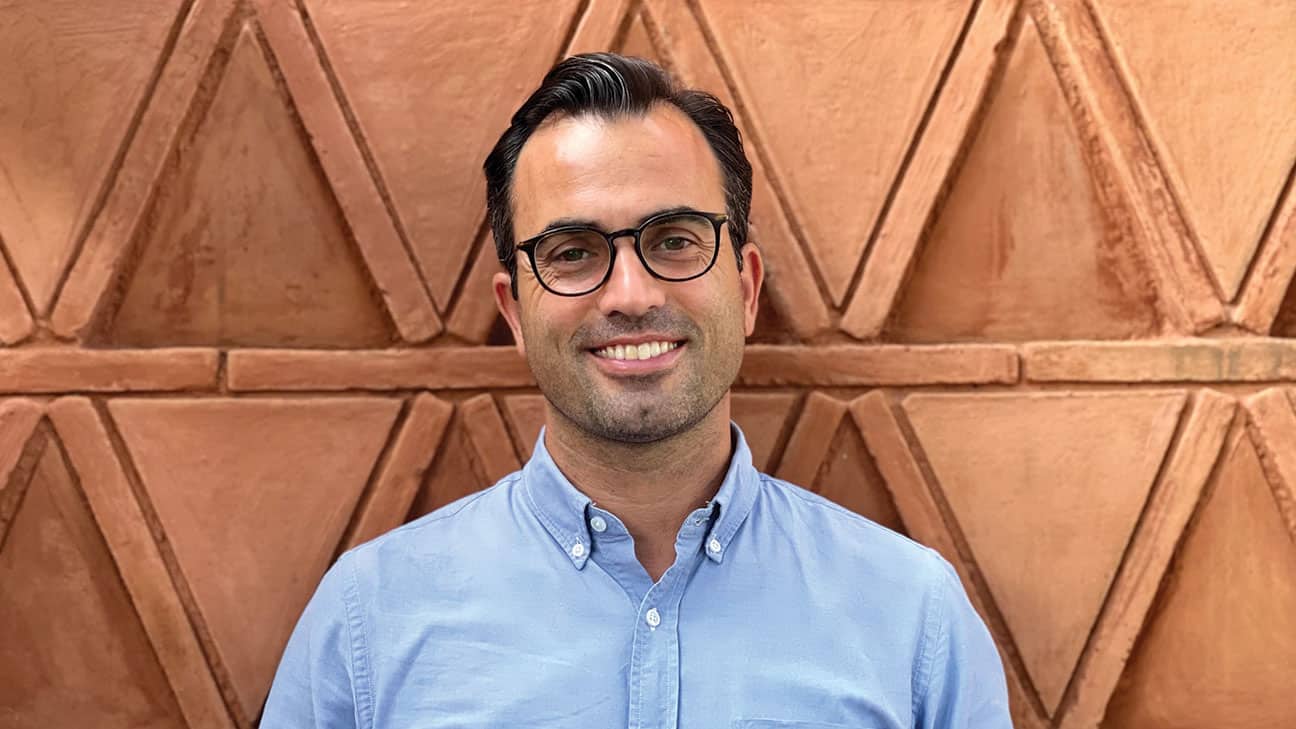
A.S. Dillingham has been awarded the American Society for Ethnohistory's best book prize for 2022.
Historian receives prestigious award for first book
Published November 1, 2022By Shelia Kirven
A.S. Dillingham has been awarded the American Society for Ethnohistory‘s best book prize for 2022 for his book, Oaxaca Resurgent: Indigeneity, Development, and Inequality in Twentieth-Century Mexico (Stanford University Press, 2021).
Dillingham, a Choctaw tribal member, is a historian and assistant professor in the School of Historical, Philosophical and Religious Studies at Arizona State University. His research focuses on the histories of Native peoples of the Americas.
According to his website, Dillingham focused his book on the intersection of anticolonial politics and education and development policy, and labor and youth-led social movements.
Dillingham was in southern Mexico in 2006 during a time when a teacher’s strike was met with violent repression and outrage, and the governor was asked to resign. He said, “As a historian, one way we try to understand current issues is by looking at the past and what led up to that.” He looked at the twentieth century, paying attention to bilingual teachers and telling the story of how teachers fought for education that respects Native culture and tradition and valorizes Native languages. He says this is an issue that Native people face across the Americas in preserving culture, language and customs and that there are parallels between the language used in Oklahoma by Native American tribes and the older generations who try to preserve the language. “It is a really important issue,” he said.
Dillingham was born in Bloomington, Illinois; his mother was from central Illinois, and his father was from Oklahoma. His Choctaw grandfather, John Dillingham, left home to work as a welder in Corpus Christi, Texas, and served as a minister. “He wasn’t raised by his biological father and his mother died when he was young,” Dillingham said this elder became interested in family history and Choctaw in part because he had lost that connection. “He was really influential to me, and he was someone, in part because of his training as a minister and as a chaplain, [who] was a really good listener and would listen to me and also ask me questions. He would have us think about our family history and think about U.S. history from a bit of a different perspective, U.S. history from a Choctaw perspective, a Native American perspective. That was really important for me when I started studying history in college.”
During high school at age 16, Dillingham spent a summer in Mexico through a student program, immersing himself in the culture and language and living with a Mexican family with children his age. He said growing up in a small town and seeing Mexico City was a big deal to him. He was there during the 1990s during an Indigenous rebellion in Southern Mexico of Mayan activists and rebels, which he says was all over the news. He said it sparked his interest in Native and Indigenous politics in Mexico and the United States. “That was the key moment for me in terms of getting hooked on Mexican studies,” Dillingham. He returned to Mexico for subsequent summers and applied for fellowships putting him there for longer stretches of time.
Dillingham completed his Ph.D. in history in 2012 at the University of Maryland.
He taught at Springhill College in Mobile, Alabama, and Albright in Redding, Pennsylvania, before settling at Arizona State University. “The reason why I accepted the job here is because Arizona State is trying to deliberately grow their Native American and Indigenous history course offerings.”
Dillingham is working on a second book, a transnational analysis of land, labor and development initiatives in North American “frontier” settlements that focuses on Native peoples across the Americas who have confronted similar and parallel issues. It will examine racialized conflicts over twentieth-century land reform, policies of Native resettlement and the multiple legacies of slavery. He intends to focus on how Native American history in Oklahoma is connected to African American history and would like to study them together. “Rather than studying different groups in isolation, what can we learn if we look at Native peoples together?”
“One parallel between my research on Native youth in Mexico in the 1960s and Choctaw history is of course the Choctaw Youth Movement, which fought against termination and involved Choctaw youth in Oklahoma City and other places. The connection is really that Native youth in Mexico and the United States were engaged in growing political activism and cultural resurgence during this period. This is also the period where one sees the growth of groups like the American Indian Movement (AIM) in the U.S.”
Dillingham plans to visit archival collections, research in Oklahoma with the Choctaw tribe and at the National Archives in Washington, D.C., and do oral interviews on Mexico’s Pacific coast. He also plans to utilize existing recorded histories and information.
After working on his second book, Dillingham said he looks forward to continuing to mentor students, which is an integral part of his work. He would also like to work on writing his family’s history that connects with the history of the Choctaw Nation and its removal to Indian territory and his family’s veterans. His wife Frida, whom he met in southern Mexico while researching his book, also comes from an Indigenous family on both sides. He plans to record her family history as well.
Readers can follow A.S. Dillingham on his website, alanshanedillingham.com or Twitter.
Oaxaca Resurgent: Indigeneity, Development, and Inequality in Twentieth-Century Mexico (Stanford University Press, 2021) can be purchased from Stanford University Press, Amazon or any online bookseller.

